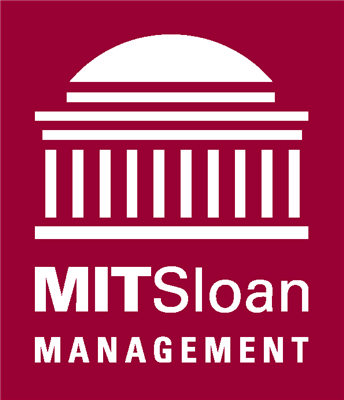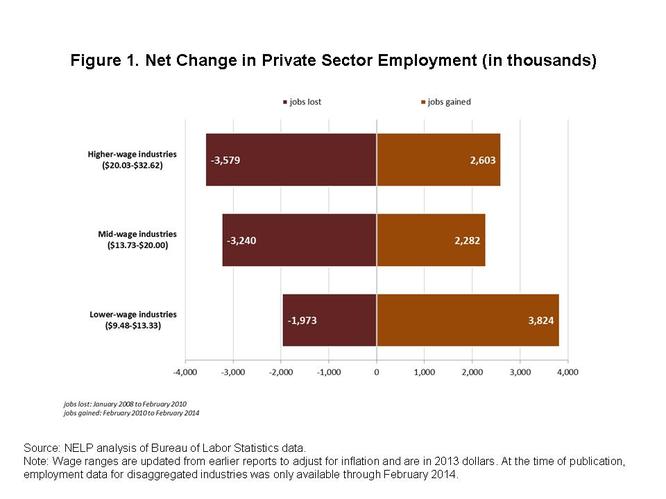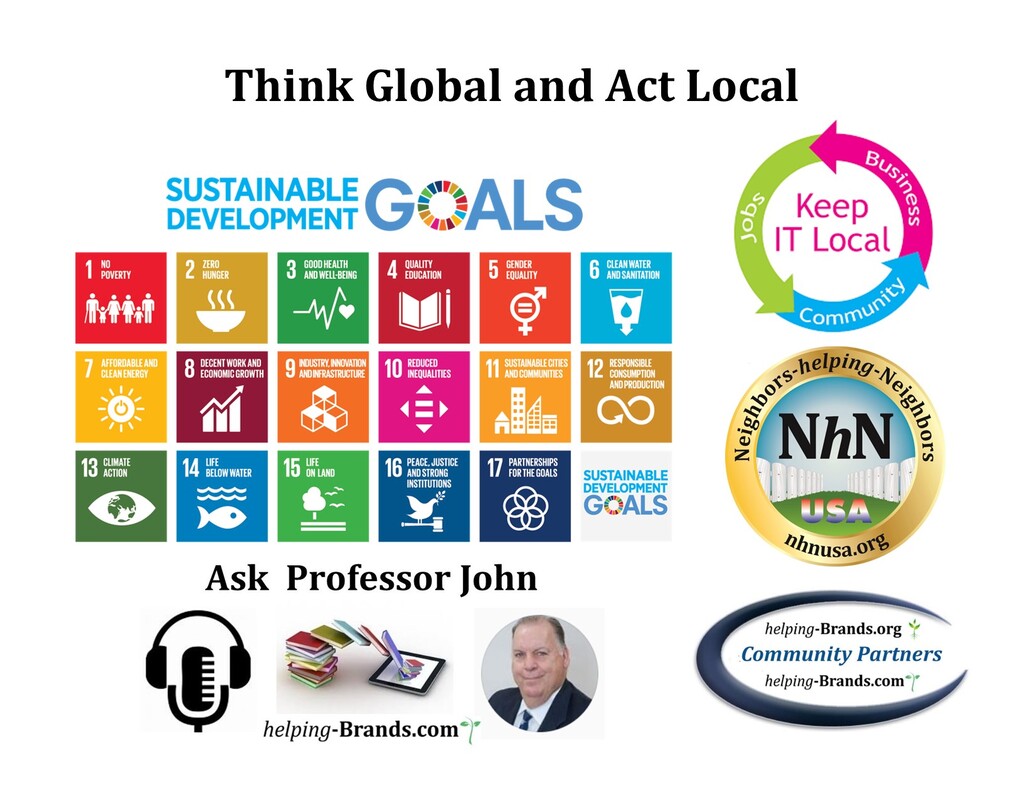|
Institute for Career Transitions
Ofer Sharone’s research and the work of ICT was been nominated for the Renewal Awards. #Renewal Awards #LongTermUnemployment #FutureOfWork http://bit.ly/1LPr127 P.S.S. PBS’s Next Avenue named Ofer Sharone as a top 50 “Influencer in Aging.” nextavenue.org/influencers #InfluencingAging Tweetable: @NextAvenue 2015 #InfluencingAging list honors @OferSharone1 @ICTransitions. Read why → http://nexav.org/2015IA In the News Susan McNeill Spuhler and Karen Lamkin were interviewed for the NYT article on women over 50 and jobless… http://mobile.nytimes.com/2016/01/02/business/economy/over-50-female-and-jobless-even-as-others-return-to-work.html?referer=https://www.google.com/ Ofer Sharone’s article How to Help the Older Long-Term Unemployed: Recommendations from a Next Avenue Influencer In Aging... http://www.nextavenue.org/how-to-help-the-older-long-term-unemployed/ The Crisis of Long Term unemployment:
|
6.9.14 - Amid Long-Term Unemployment ‘Crisis,’ MIT Project Lifts Job Seekers
Search without reward
MIT conference highlights the plight of the long-term unemployed, a social issue of growing urgency.
The Crisis of Long Term Unemployment - MIT mini conference
Unemployment Crisis
I had the honor on May 6th to present at a conference at MIT in Boston and wanted to share with the AOL Jobs audience some of the takeaways from this event about the National Crisis of Long-Term Unemployment that lacks the level of awareness it needs to be solved.
Unemployment remains the top concern of Americans in all recent polls, according to Gallup Feb 17,2014
Led by Asst. Professor Offer Sharone, (MIT and ICT) Michelle Rosin (ICT) Emily Allen (AARP-Foundation) and Katy Bertman ( MIT), this conference brought together more than 250 highly respected leaders and professionals working in this area towards solutions. The event featured speakers from academia, government, and industry.
.
"It's a moral issue," said Sharone, an assistant professor of work and employment research. "It's these individuals who we, as a society, are asking to pay the price, with their life savings, their homes. Many of them come to fear that something is wrong with them."
Comments from some key speakers:
"We need a sense of urgency for this particular problem, long-term unemployment, in this country," said Eric M. Seleznow, acting assistant secretary at the U.S. Department of Labor, in the conference's keynote talk.
Rachel Kaprielian: "We know that we need to get people back in a job quickly to avoid long-term unemployment and avoid the hiring bias this group is experiencing."
Massachusetts is using DOL funding in the re-employment assistance program to help claimants start working on getting back to work on day one. More than 50,000 UI claimants participated in REA programs during the last two years. Their average length of unemployment was 20 weeks.
Jennifer James presented on a new initiative driven by the MA Governor and Executive Office of Labor and Workforce Development. "Even in the best educated state in the nation, we see just under 50% of our job seekers at One Stop Career Centers walking in the door with a high school diploma or less. We went looking for new tools to expand our system's capacity to address basic reading, math and career readiness skills of our customers. This summer, we are launching a new Career Readiness Initiative to create 100 Career Readiness Learning Labs across the state as well as testing sites to provide job seekers with a National Career Readiness Certificate."
Ben Siegel's presentation highlights were:
· Resist rush to judge "success" or "failure" of initiatives
· Increase funding for rigorous, independent research on performance and impacts
· Support workforce data quality initiatives and use of administrative data
· Fund research on predictive analytics and application of behavioral science principles in the design and administration of programs
· Establish "What Works Clearinghouse" ( e.g. Institute of Education Sciences at the U.S. Department of Education)
Indeed, the lack of well-paying permanent jobs remains the biggest issue surrounding long-term unemployment. Strategies to level the job-search playing field for the long-term unemployed may be vital, but as Boston College Professor David Blustein noted in the day's final talk, there is no substitute for abundant opportunity.
"We need to create work for people so they can rebuild their shattered lives," Blustein said.
Alexandra LeBlanc, an experienced-hire recruiter for a Big 4 firm who was an attendee said, "The dialogue started at the conference really emphasized the need for stronger communication among job seekers, counselors, and recruiters. Candidates have a right to know what recruiters evaluate when they look at a resume or perform an interview, why they were or were not chosen to move forward, and given a reasonable timeframe for feedback. Until we as recruiters can speak honestly with candidates and counselors about the recruiting process, there will continue to be unnecessary stress on everyone's part. This issue will not be solved overnight, but clearer, more frequent communication will at least alleviate some of the frustration."
Joe Carbone expressed the feelings of most of the participants who were there, "I don't know when I enjoyed a conference as much as this one. Just looking at the faces and expressions of the participants as they listened to ideas and opinions was inspiring. They were genuinely connected to the conversation. My commendations to everyone who helped pull this every informative event together."
Ofer Sharone shared his reflections of the conference with me and said, "I feel more hopeful after hearing about the different programs including Neighbors-helping-Neighbors that are making a real difference in supporting the LTU, and seeing that 250 people came to this conference to figure out how to make more progress on the LTU crisis."
Some of my takeaways of the conference:
As one hat i wear being a Jobs Advocate "Job creation is needed, there are not enough jobs for those who are ready and qualified to work."
The unemployment and underemployment has created an economy that is not healthy as many who spin the truth would like to believe. I continue to discover that there are still a lot Americans, elected officials and media who are not properly informed and aware of how serious the unemployment crisis is.
There is a need for organizations and groups in this area to collaborate and work together sharing information, resources and finding solutions for the Long Term Unemployed candidates. And not work alone in separate "bubbles" as Ofer Sharone called it.
Need to educated all levels of Employers in the value of the LTU candidates and understand better how their focus on short term profits and using capital to replace jobs is compounding this problem.
Many of the long term unemployed are unfairly being portrayed as lacking skills and not job ready to be able to fill the job openings that supposedly exist. HB1 visas have been used to fill many jobs in tech that is really more about reducing the costs of these jobs from $50 to $25 dollars an hour.
1.6 million returning decommissioned Veterans will be coming back looking for jobs in the privated sector also over the next four years.
The good news is there are many working to find solutions and to help identify issues that our policy makers need to understand and address and much of this cannot be solved by individual efforts by the unemployed but need the support and help of all these stakeholders working together to create solutions.
The presentation program included:
Support Organizations on the Frontlines
Thanks to the sponsors who made this event possible: MITSloan, AARP-Foundation, Institute for Career Transitions (ICT) and Institute for Work & Employment Research (IWER).
Unemployment Crisis
MIT conference recap page on NhN
Jobs411.org
Unemployment remains the top concern of Americans in all recent polls, according to Gallup Feb 17,2014
Led by Asst. Professor Offer Sharone, (MIT and ICT) Michelle Rosin (ICT) Emily Allen (AARP-Foundation) and Katy Bertman ( MIT), this conference brought together more than 250 highly respected leaders and professionals working in this area towards solutions. The event featured speakers from academia, government, and industry.
.
"It's a moral issue," said Sharone, an assistant professor of work and employment research. "It's these individuals who we, as a society, are asking to pay the price, with their life savings, their homes. Many of them come to fear that something is wrong with them."
Comments from some key speakers:
"We need a sense of urgency for this particular problem, long-term unemployment, in this country," said Eric M. Seleznow, acting assistant secretary at the U.S. Department of Labor, in the conference's keynote talk.
Rachel Kaprielian: "We know that we need to get people back in a job quickly to avoid long-term unemployment and avoid the hiring bias this group is experiencing."
Massachusetts is using DOL funding in the re-employment assistance program to help claimants start working on getting back to work on day one. More than 50,000 UI claimants participated in REA programs during the last two years. Their average length of unemployment was 20 weeks.
Jennifer James presented on a new initiative driven by the MA Governor and Executive Office of Labor and Workforce Development. "Even in the best educated state in the nation, we see just under 50% of our job seekers at One Stop Career Centers walking in the door with a high school diploma or less. We went looking for new tools to expand our system's capacity to address basic reading, math and career readiness skills of our customers. This summer, we are launching a new Career Readiness Initiative to create 100 Career Readiness Learning Labs across the state as well as testing sites to provide job seekers with a National Career Readiness Certificate."
Ben Siegel's presentation highlights were:
- DOL currently has $1 billion in open grant competitions to train and place Americans into jobs. $300 million of these funds are directly focused on serving the long-term unemployed, including the Ready to Work Partnership grant and Job-Driven National Emergency Grants.
- While it is critical that we focus our efforts on addressing the challenges facing the current group of long-term unemployed workers we must also make sure to continue that shorter term unemployed workers don't fall into long term unemployment. That's why the Department of Labor has invested in proven programs like the Reemployment Eligibility Assessment/Reemployment Services and short-time compensation or work sharing. These "LTU prevention" programs help workers get back to work quickly or remain on the job.
- Job clubs like Neighbors-helping-Neighbors have played an important role in helping the long-term unemployed rebuild their confidence, connect with new contacts and employers, and reestablish their careers.
· Resist rush to judge "success" or "failure" of initiatives
· Increase funding for rigorous, independent research on performance and impacts
· Support workforce data quality initiatives and use of administrative data
· Fund research on predictive analytics and application of behavioral science principles in the design and administration of programs
· Establish "What Works Clearinghouse" ( e.g. Institute of Education Sciences at the U.S. Department of Education)
Indeed, the lack of well-paying permanent jobs remains the biggest issue surrounding long-term unemployment. Strategies to level the job-search playing field for the long-term unemployed may be vital, but as Boston College Professor David Blustein noted in the day's final talk, there is no substitute for abundant opportunity.
"We need to create work for people so they can rebuild their shattered lives," Blustein said.
Alexandra LeBlanc, an experienced-hire recruiter for a Big 4 firm who was an attendee said, "The dialogue started at the conference really emphasized the need for stronger communication among job seekers, counselors, and recruiters. Candidates have a right to know what recruiters evaluate when they look at a resume or perform an interview, why they were or were not chosen to move forward, and given a reasonable timeframe for feedback. Until we as recruiters can speak honestly with candidates and counselors about the recruiting process, there will continue to be unnecessary stress on everyone's part. This issue will not be solved overnight, but clearer, more frequent communication will at least alleviate some of the frustration."
Joe Carbone expressed the feelings of most of the participants who were there, "I don't know when I enjoyed a conference as much as this one. Just looking at the faces and expressions of the participants as they listened to ideas and opinions was inspiring. They were genuinely connected to the conversation. My commendations to everyone who helped pull this every informative event together."
Ofer Sharone shared his reflections of the conference with me and said, "I feel more hopeful after hearing about the different programs including Neighbors-helping-Neighbors that are making a real difference in supporting the LTU, and seeing that 250 people came to this conference to figure out how to make more progress on the LTU crisis."
Some of my takeaways of the conference:
As one hat i wear being a Jobs Advocate "Job creation is needed, there are not enough jobs for those who are ready and qualified to work."
The unemployment and underemployment has created an economy that is not healthy as many who spin the truth would like to believe. I continue to discover that there are still a lot Americans, elected officials and media who are not properly informed and aware of how serious the unemployment crisis is.
There is a need for organizations and groups in this area to collaborate and work together sharing information, resources and finding solutions for the Long Term Unemployed candidates. And not work alone in separate "bubbles" as Ofer Sharone called it.
Need to educated all levels of Employers in the value of the LTU candidates and understand better how their focus on short term profits and using capital to replace jobs is compounding this problem.
Many of the long term unemployed are unfairly being portrayed as lacking skills and not job ready to be able to fill the job openings that supposedly exist. HB1 visas have been used to fill many jobs in tech that is really more about reducing the costs of these jobs from $50 to $25 dollars an hour.
1.6 million returning decommissioned Veterans will be coming back looking for jobs in the privated sector also over the next four years.
The good news is there are many working to find solutions and to help identify issues that our policy makers need to understand and address and much of this cannot be solved by individual efforts by the unemployed but need the support and help of all these stakeholders working together to create solutions.
The presentation program included:
Support Organizations on the Frontlines
- Platforms to Employment: Joe Carbone (Founder and President)
- MA One Stop System's New Initiative: Jennifer James, MA Undersecretary for Workforce Development
- Neighbors-helping-Neighbors USA: John R. Fugazzie (Founder and President)
- Operation Able Boston: Joan Cirillo (President & CEO)
- Jewish Vocational Services of Boston: Jerry Rubin (President and CEO)
- U.S. Department of Labor Eric M. Seleznow - US Assistant Secretary of Labor
- MA Secretary of Labor and Workforce Development: Rachel Kaprielian
- U..S Department of Labor Ben Seigel Sr. Policy Advisor, Office of the Assistant Secretary Employment & Training
- Mass General Hospital, Director of Human Resources: Steven Taranto
- AARP-Foundation: Emily Allen
- National Employment Law Project: George Wentworth
- Carl E. Van Horn, Ph.D. Professor of Public Policy and Director, John J. Heldrich Center for Workforce Development (Rutgers ):[Research on Policies for Supporting the Long Term Unemployed]
- Rand Ghayad (Boston Federal Reserve/Northeastern University): [The Jobless Trap]
- Mary Gatta (author: All I Want is a Job: Unemployed Women Navigating the Public Workforce System)
- David Blustein (Boston College): [ A Critical Perspective on Contemporary Unemployment Policy and Support Practices]
Thanks to the sponsors who made this event possible: MITSloan, AARP-Foundation, Institute for Career Transitions (ICT) and Institute for Work & Employment Research (IWER).
Unemployment Crisis
MIT conference recap page on NhN
Jobs411.org
Support Organizations on the Frontlines
-Platforms to Employment: Joe Carbone (Founder and President)
-MA One Stop System's New Initiative: Jennifer James, MA Undersecretary for Workforce Development
-Neighbors-helping-Neighbors USA: John Fugazzie (Founder and President)
-Operation Able Boston: Joan Cirillo (President & CEO)
-Jewish Vocational Services of Boston: Jerry Rubin (President and CEO)
-Platforms to Employment: Joe Carbone (Founder and President)
-MA One Stop System's New Initiative: Jennifer James, MA Undersecretary for Workforce Development
-Neighbors-helping-Neighbors USA: John Fugazzie (Founder and President)
-Operation Able Boston: Joan Cirillo (President & CEO)
-Jewish Vocational Services of Boston: Jerry Rubin (President and CEO)
Presentations
|
John R. Fugazzie
|
Joe Carbone
| ||||||||||||
Policymakers, Policy Directions and Key Actors
-U.S. Department of Labor Eric M. Seleznow - US Assistant Secretary of Labor
-MA Secretary of Labor and Workforce Development: Rachel Kaprielian
-U..S Department of Labor Ben Seigel Sr. Policy Advisor, Office of the Assistant Secretary Employment & Training
-National Employment Law Project: George Wentworth
-AARP-Foundation: Emily Allen
-U.S. Department of Labor Eric M. Seleznow - US Assistant Secretary of Labor
-MA Secretary of Labor and Workforce Development: Rachel Kaprielian
-U..S Department of Labor Ben Seigel Sr. Policy Advisor, Office of the Assistant Secretary Employment & Training
-National Employment Law Project: George Wentworth
-AARP-Foundation: Emily Allen
|
George Wentworth
| |||||||
Research on Long Term Unemployment
-Carl Vanhorn (Rutgers): [Research on Policies for Supporting the Long Term Unemployed]
-Rand Ghayad (Boston Federal Reserve/Northeastern University): [The Jobless Trap]
-Mary Gatta (author: All I Want is a Job: Unemployed Women Navigating the Public Workforce System)
-David Blustein (Boston College): [ A Critical Perspective on Contemporary Unemployment Policy and Support Practices]
-Carl Vanhorn (Rutgers): [Research on Policies for Supporting the Long Term Unemployed]
-Rand Ghayad (Boston Federal Reserve/Northeastern University): [The Jobless Trap]
-Mary Gatta (author: All I Want is a Job: Unemployed Women Navigating the Public Workforce System)
-David Blustein (Boston College): [ A Critical Perspective on Contemporary Unemployment Policy and Support Practices]
Presentations
|
David Blustein
(Boston College): [ A Critical Perspective on Contemporary Unemployment Policy and Support Practices]
|
Carl E. Van Horn
| ||||||||||||
MIT Sloan to hold national conference on long-term unemployment
CAMBRIDGE, Mass., April 20, 2014 –Although the short-term unemployment rate in the U.S. is receding to pre-recession levels, long-term unemployment remains at levels unseen since the Great Depression. Nearly 4 million people have now been out of a job for more than six months. To address this crisis, its underlying causes and potential solutions, MIT Sloan School of Management’s Institute for Work and Employment Research is holding a conference on May 6 for scholars, policymakers, and practitioners.
“This will be the first national gathering of its kind to bring together these groups of experts to discuss long-term unemployment,” says MIT Sloan School of Management Prof. Ofer Sharone. “There are millions of people left out of the workforce who want to contribute. This is devastating families because of the loss of income, it’s emotionally devastating individuals, and it’s hurting our economy. We need to find solutions that work and solve this problem.”
The conference stems from a project by Sharone at the Institute for Career Transitions in which he is connecting long-term unemployed individuals with volunteer career coaches. Tracking their outcomes, he’s hoping to determine which strategies work. In addition to discussing early results from this project, the conference will bring together representatives from the most promising programs across the U.S. that support the long-term unemployed, along with policymakers and thought leaders on this issue.
Dear conference participants, It's hard believe over a month has passed by since our conference on the crisis of LTU! Thank you for your participation. I believe we collectively moved the conversation forward but much work remains to be done. I wanted to follow up on a few issues:
A couple of more items:
I look forward to continuing to collaborate with all of you in responding to the crisis of LTU,
Ofer Sharone
____________________
Relevant Pending Legislation
Rosie Hunter, Chief of Staff, Office of Senator Mike Barret: The two main bills relevant to the LTU in the MA legislature are:
“An Act providing fair chances for employment,” Senate bill 843/House bill 1745. The Senate bill was filed by Senator Barrett, the House bill by Representative Malia. This legislation would prohibit employers from refusing to hire or consider for employment someone simply because they are currently unemployed. This legislation is currently before the House Committee on Ways & Means, so that, and the Chair of the Committee in particular (Representative Dempsey) is to whom people should address any communications about this bill.
“An Act regulating the use of credit reports by employers,” Senate bill 80/House bill 1744. The Senate bill was filed by Senator Barrett, the House bill by Representative Malia. This legislation would prohibit employers from checking or considering an applicant’s credit history when making hiring and other employment decisions. The long-term unemployed, for obvious reasons, are a population likely to have damaged credit histories. This legislation is currently before the Joint Committee on Consumer Protection & Professional Licensure. So communications about it should chiefly be addressed to the Chairs of that committee, Senator Kennedy and Representative Scibak.
____________________
Workforce Development Conference: Now Open for Registration
Join the Atlanta and Kansas City Feds along with the John J. Heldrich Center for Workforce Development at Rutgers University for the conference Transforming U.S. Workforce Development Polices for the 21st Century. The event will take place October 15–17.
Workforce development and labor market issues have come to the forefront as the nation continues its recovery from the Great Recession. National experts will share their perspectives on transformative education and workforce development strategies and policies to:
- Improve opportunities for job seekers, students, and workers, especially those who face the greatest difficulties in the labor market
- Meet the needs of employers and society for a highly skilled, well-educated, competitive, and productive workforce
- Deliver effective and efficient solutions that can be adopted by federal, state, or local/regional governments as well as by educational institutions, businesses, and nonprofit organizations.
Who should attend: Workforce development providers, postsecondary educators, federal, state, and local policymakers, community-based organizations, researchers, lenders, the philanthropic community, and students are encouraged to attend.
Conference Hashtag: #WDPolicy14
Register today for this conference before the early bird deadline of Friday, July 18 and save $50. Register at: http://www.frbatlanta.org/news/conferences/2014workforce.cfm
____________________________
Ofer Sharone
Asst. Professor
MIT Sloan School of Management
100 Main Street, Bldg E62-340
Cambridge MA 02142-1347
(617) 253-7483
[email protected]
_____________________________
- Institute for Career Transitions (ICT): Many have asked me about getting involved with the ICT's effort to support LTU job seekers. If you are a career coach/counselor, or otherwise interested in supporting LTU job seekers (on a pro bono or sliding scale basis) please let me know. We are hoping to do another round of matching LTU job seekers with support this coming fall.
- Conference Presentations: Many of you have asked about presentation slides. They are available at the ICT website: http://instituteforcareertransitions.org/conference-presentations/
- MIT News story about the conference: http://newsoffice.mit.edu/2014/conference-highlights-plight-of-long-term-unemployed-0507
- Photos from the conference can be seen at: http://instituteforcareertransitions.org/conference-photos/
A couple of more items:
- LTU Related Legislation: If would like to support bills that are currently pending in the MA legislature that can make a difference on the LTU issue please see the information below.
- Workforce conference: Also read below If you would like to learn about an important conference on workforce development to be held at Rutgers next October.
I look forward to continuing to collaborate with all of you in responding to the crisis of LTU,
Ofer Sharone
____________________
Relevant Pending Legislation
Rosie Hunter, Chief of Staff, Office of Senator Mike Barret: The two main bills relevant to the LTU in the MA legislature are:
“An Act providing fair chances for employment,” Senate bill 843/House bill 1745. The Senate bill was filed by Senator Barrett, the House bill by Representative Malia. This legislation would prohibit employers from refusing to hire or consider for employment someone simply because they are currently unemployed. This legislation is currently before the House Committee on Ways & Means, so that, and the Chair of the Committee in particular (Representative Dempsey) is to whom people should address any communications about this bill.
“An Act regulating the use of credit reports by employers,” Senate bill 80/House bill 1744. The Senate bill was filed by Senator Barrett, the House bill by Representative Malia. This legislation would prohibit employers from checking or considering an applicant’s credit history when making hiring and other employment decisions. The long-term unemployed, for obvious reasons, are a population likely to have damaged credit histories. This legislation is currently before the Joint Committee on Consumer Protection & Professional Licensure. So communications about it should chiefly be addressed to the Chairs of that committee, Senator Kennedy and Representative Scibak.
____________________
Workforce Development Conference: Now Open for Registration
Join the Atlanta and Kansas City Feds along with the John J. Heldrich Center for Workforce Development at Rutgers University for the conference Transforming U.S. Workforce Development Polices for the 21st Century. The event will take place October 15–17.
Workforce development and labor market issues have come to the forefront as the nation continues its recovery from the Great Recession. National experts will share their perspectives on transformative education and workforce development strategies and policies to:
- Improve opportunities for job seekers, students, and workers, especially those who face the greatest difficulties in the labor market
- Meet the needs of employers and society for a highly skilled, well-educated, competitive, and productive workforce
- Deliver effective and efficient solutions that can be adopted by federal, state, or local/regional governments as well as by educational institutions, businesses, and nonprofit organizations.
Who should attend: Workforce development providers, postsecondary educators, federal, state, and local policymakers, community-based organizations, researchers, lenders, the philanthropic community, and students are encouraged to attend.
Conference Hashtag: #WDPolicy14
Register today for this conference before the early bird deadline of Friday, July 18 and save $50. Register at: http://www.frbatlanta.org/news/conferences/2014workforce.cfm
____________________________
Ofer Sharone
Asst. Professor
MIT Sloan School of Management
100 Main Street, Bldg E62-340
Cambridge MA 02142-1347
(617) 253-7483
[email protected]
_____________________________







































